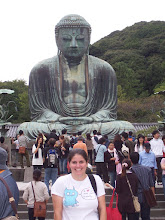Now I want to do a little exercise with you. Think of the word factory. Envision one. Perhaps first you see smoke stacks, hung with streamers of smoke. The building is long and low, probably made out of metal or even brick. Go inside your mental factory, through the heavy metal doors. What do you see? Heavy machinery, conveyor belts, assembly lines. You hear the overwhelming sound of motion, people and machines all running together. Now because this is a sugar factory perhaps it smells sweet. Maybe the workers wear apron and hairnets. Someone hands you a sugar cube, small and white and clean. You lick it - sweet.
Before we go on - remember, Panama is a third world country.
Early Thursday morning we heard "Creeese" called softly from the area of the front porch. Jose was there to take us to see the factory.
We walked together down the dirt road in the early 75-degree cool of the morning. Before we reached the bus stop we took a right, down an even narrower dirt road - really more of a track - wide enough for only one truck at a time to bounce down.
Jose turned right again, this time onto grass, and this is what we saw.

A particularly pretty Panamanian house. We walked around it, passing between the house and a shed with a couple of small parrots hanging around outside. Evidently they were pets.

Jose stopped to reset the stool for this fighting cock. It had fallen over, making his string-shackle uncomfortably short. And here was our first view of the sugar factory.

Under a tin roof, three men and two cows worked to wring juice from the sugar cane. The cows were tied together at the horns to keep them from getting out of sync. The big one was on the outside, the smaller one on the inside, both connected to the revolving arm of the machine - if you can use that word to describe something made entirely of wood. The man in the yellow shirt (below) followed them around, whipping them occasionally with a string tied to a stick.

Meanwhile, two men fed stalks of sugar cane into the rolling gears. They would feed the same piece three or four times, until all the liquid had run down the chute and into a large plastic water butt. When they started new stalks yellow-shirt would whip the cows and call out - making them run.
 We watched this process for several minutes, fascinated. And Grant and I bought six cakes of the finished sugar from the woman who owned the house. They cost us a dollar. If anyone wants one just let me know. I'll mail one to you.
We watched this process for several minutes, fascinated. And Grant and I bought six cakes of the finished sugar from the woman who owned the house. They cost us a dollar. If anyone wants one just let me know. I'll mail one to you.We left, promising to return at nine when they started boiling the cane juice.
After breakfast we returned as promised. A little boy, probably not much older than ten, had taken over from yellow-shirt. When it was time to start new cane he whipped the cows with gusto and set them trotting.

Smoking billowed from low metal tub where the juice was boiling, bearing only passing resemblance to our smoke stack streamers. The smell was sticky-sweet, almost enough to make you feel a little sickly. And the heat was intense.

The heat didn't seem to bother this little guy, who next to the stone with gum in his hair and looked disinterestedly at us every now and then.
When we left we thanked the lady of the house. She had given us a whole new definition of the word factory.
I leave you today with a quote from Stephen Wright, "Last week the candle factory burned down. Everyone just stood around and sang Happy Birthday."




